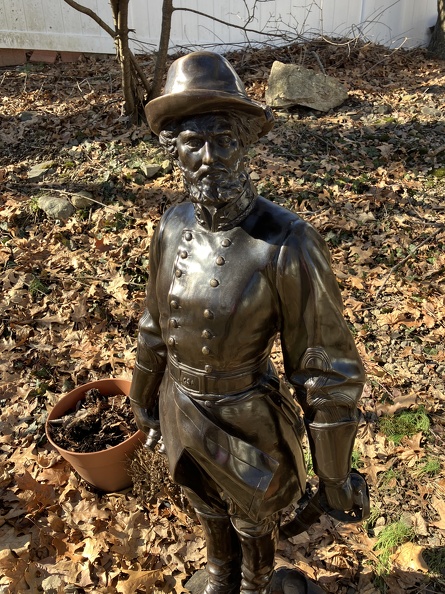Yesterday I was walking to the train station after work, and I was in agony. As an autistic person, I have severe sensory sensitivity to wind. As I speed-walked down the sidewalks and ran across the streets, trying to get to the station as quickly as possible, air blasted brutally and relentlessly in my face, freezing my cheeks and nose and causing excruciating pain throughout my entire body.
As I waited for the train, exhausted and trying to recover from the assault, I dreaded the walk at the other end of the commute, from the train station near my house, to my house itself. This walk is more than twice as long as the one from work to the station, and there was no reason to believe the wind would be any less vicious. Because I had gotten out of work a few minutes late, there was no way I could catch the bus from the station.
After getting off of the train, I took my time securing my hat on my head, putting on my gloves, and making sure my scarf covered as much of my face and neck as possible. By the time I stepped out into the painful conditions, the crowd of people from the train had dispersed. Because there was no one to feel self-conscious in front of, I muttered under my breath as I walked. I complained, sometimes profanely, about how painful and horrible the wind was, about how wrong it was that work got out late and cause me to miss the bus, about how bizarre it was people could walk around and exist in these conditions as if nothing was wrong, and about why the heck humans hadn’t invented a way of preventing such atrocious weather conditions from occurring.
A remarkable thing happened as I made my angry way through the streets: the wind wasn’t as bad as I thought it would be.
When the ice-cold blasts of air started to increase in frequency and severity, I turned around and walked backwards. That way, the back of my head sustained the brunt of the assault, as opposed to the bare skin of my face. This slowed down my progress considerably, and I must have looked like a complete lunatic to anyone who happened to be observing from the houses that lined the streets, or the cars that occasionally passed by.
But miraculously, it worked. Freed from the obligation to act in a socially acceptable manner, I was able to take the measures that I needed to take in order to minimize the pain. Wearing the warmest clothing possible, walking as quickly as possible, walking backwards when the direction of the wind demanded it, and expressing my anger and pain, all combined to reduce the amount of suffering that I was subjected to.
My past self, if faced with this same situation, might have forced herself to walk quietly and forward-facing at all times, perhaps even with a smile on her face. And then, upon arriving home, she would probably have commenced screaming, kicking furniture, and throwing things immediately after stepping through the door. But because I gave myself permission to do what my body needed, regardless of how it looked to other people, I was able to survive the journey home with a minimum of suffering.
In the autistic community, the act of forcing oneself to appear socially acceptable is known as masking. This is something that I’ve done to a very high degree for almost my entire life. When I mask, I force myself to hide my sensory sensitivities and other autistic traits. I pretend that I am okay when I am not, I pretend that I am happy when I am miserable, and I pretend to like things that I don’t. I force myself to behave the way that “normal” people behave, even when it goes against my preferences, needs, and true nature.
I wonder how much of autistic people’s suffering is caused by sensory issues themselves, versus how much of our suffering is caused by depriving ourselves of the things that we need to manage the sensory issues, out of the belief that these things would look “weird.” Is it autism itself that makes life difficult, or is it masking?
To a large degree, I think the answer is the latter. Masking is something that I am trying to do less of. I am no longer willing to deprive myself of the things that I need, and subject myself to needless suffering, for the sake of looking “normal.”

